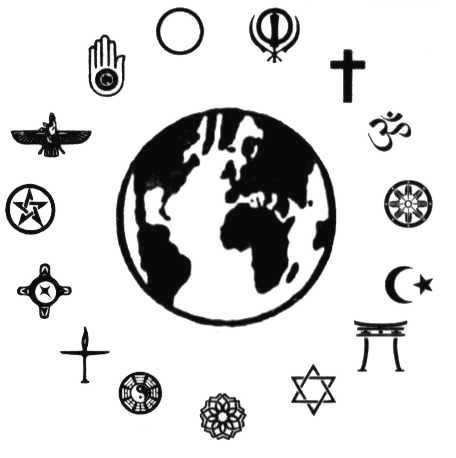How is death viewed in Different Religions?
 How is death viewed in childhood?
How is death viewed in childhood?
1) children as young as 2 have some understanding of death
2) fear death means being abandoned by the people they love
3) children do not share the same perceptions as adults
How is death viewed in adolescence and emerging adulthood?
1) Death is feared less
2) Live is considered less precious
3) Death is romanticized
How is death viewed in adulthood?
1) Death is dreaded as something to be avoided or at least postponed
2) Terminally ill adults do not fear their own death as much as they worry about leaving something undone
3) Attitudes about death are quite different for a public tragedy and for a private one - age of death is one factor, emotions of public death and public policy affect
How is death viewed in late adulthood?
1) Anxiety about death decreases
2) Older people tie up loose ends (wills, reconcile with family, read scriptures)
3) Religion becomes more important
4) Family becomes more important
How is death vied by Buddhists?
1) Disease and death are inevitable sufferings which may eventually bring enlightenment - they are part of the great circle of existence
2) Death occurs in 8 stages, with the last 4 after 'physical death'
3) The task of the individual is to gain insight from dying
4) Death is not an end of the individual who will be reborn and if all goes well eventually reach nirvana
How is death viewed by Hindus?
1) The immediate family should help the dying person surrender his or her ties to this world and prepare for the next
2) A holy death - resting on the ground, chanting prayers, lips moistened with water from the sacred Ganges River, surrounded by family members who are reciting sacred texts
3) achieving enlightenment is more important than pain
How is death viewed by Native American Traditions?
Death is an affirmation of nature and community
How is death viewed by Jews?
1) Life should be celebrated and hope sustained
2) The person is never left alone during and after the process of dying
3) On the day after death, the body is buried, unembalmed and in a plain wooden coffin to symbolize that physical preservation is not possible.
4) The family mourns at home for 1 week, the door of the house is never locked
5) The family recites a prayer called the Kaddish every evening and curtails social activities for 1 year.
6) The kaddish is said in a special service on the anniversary of the dead
7) The person lives on in the memory and respect of the mourners, not in heaven or hell
How is death viewed by Christians?
1) Death is not an end but a beginning of eternity in heaven or hell
2) Wake and funeral services range from quiet and solemn to joyful to mournful
How is death viewed by Muslims?
1) Death affirms faith
2) Everyone should be mindful of death as this life is fleeting
3) Caring for the dying is a holy reminder of mortality
4) Devout strangers as well as relatives participate in the rituals before and after death (reciting prayers, washing the body, carrying the coffin, attending the funeral)
5) Public and noisy lamenting over death may be expressed by everyone, especially the first 3 days after death.
6) Judgement takes place before passing into a better world
